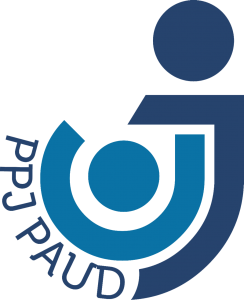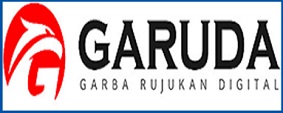Differentiated instruction in mover kindergarten: A model implementation with kurikulum merdeka
DOI:
https://doi.org/10.26555/jecce.v6i1.8775Keywords:
differentiated instruction, mover kindergarten, kurikulum merdekaAbstract
This study formulated a model for differentiated instruction at a kindergarten and described the factors that promoted or inhibited its implementation. A qualitative case study design was employed. The data were gathered through interview, observation, and documentation. The study involved a kindergarten principal, two kindergarten teachers, and 15 students from Aisyiyah Bustanul Athfal kindergarten as the mover school. Researchers were assisted by an interview guideline, an observation guideline, and documentations. Data analysis was performed based on Miles and Huberman’s interactive model. The data were validated through source and technique triangulation. Differentiated instruction was conducted using the center learning model, using demonstration, outing-class, and role-playing methods. Factors that facilitated the differentiated instruction implementation at the kindergarten included a supportive, safe, and comfortable learning environment, sufficient resources and materials, students’ psychological conditions and preparedness for learning, and the active engagement of school communities inside and outside the school. Factors that promoted the process comprised the scarcity of learning resources, insufficient infrastructure, a shortage of qualified educators, and the psychological well-being of students during the learning process. The instructional media used for the instruction were loose parts and natural materials surrounding the children.
References
Al-Shaboul, Y., Al-Azaizeh, M., & Al-Dosari, N. (2021). Differentiated instruction between application and constraints: Teachers’ perspective. European Journal of Educational Research, 10(1), 127–143. https://doi.org/10.12973/EU-JER.10.1.127
Alhafiz, N. (2022). Analisis Profil Gaya Belajar Siswa untuk Pembelajaran Berdiferensiasi di SMP Negeri 23 Pekanbaru. Jurnal Cakrawala Ilmiah, 1(5), 1133–1141. http://bajangjournal.com/index.php/JCI
Aman Mezmir, E. (2020). Qualitative Data Analysis: An Overview of Data Reduction, Data Display and Interpretation. 10(21). https://doi.org/10.7176/RHSS/10-21-02
Aprima, D., & Sari, S. (2022). Analisis Penerapan Pembelajaran Berdiferensiasi Dalam Implementasi Kurikulum Merdeka Pada Pelajaran Matematika SD. Cendikia : Media Jurnal Ilmiah Pendidikan, 13(1), 95–101. https://doi.org/10.35335/CENDIKIA.V13I1.2960
Aspers, P., & Corte, U. (2019). What is Qualitative in Qualitative Research. Qualitative Sociology, 42(2), 139–160. https://doi.org/10.1007/S11133-019-9413-7/METRICS
Bayumi, et al. (2021). Penerapan Model Pembelajaran Berdiferensiasi (Rahmadani Herlambang (ed.); Pertama). Deepublish.
Butova, A., Dubskikh, A., Kisel, O., Lomakina, Y., & Potrikeeva, E. (2019). Differentiated Approach As a Factor on Development of Students’ Professional Communicative Competence. Amazonia Investiga, 8(19), 287–297.
Cevikbas, M., & Kaiser, G. (2020). Flipped classroom as a reform-oriented approach to teaching mathematics. ZDM, 52(7), 1291–1305. https://doi.org/10.1007/s11858-020-01191-5
Cho, E., & Ilari, B. S. (2021). Mothers as Home DJs: Recorded Music and Young Children’s Well-Being During the COVID-19 Pandemic. Frontiers in Psychology, 12(637569), 1427. https://doi.org/10.3389/FPSYG.2021.637569/BIBTEX
Ciesielska, M., Boström, K. W., & Öhlander, M. (2017). Observation methods. Qualitative Methodologies in Organization Studies, 2, 33–52. https://doi.org/10.1007/978-3-319-65442-3_2/COVER
Clark, K. R., & Vealé, B. L. (2018). Strategies to Enhance Data Collection and Analysis in Qualitative Research. Radiologic Technology, 89(5), 482CT-485CT. http://www.radiologictechnology.org/content/89/5/482CT.full
Dijkstra, E. M., Walraven, A., Mooij, T., & Kirschner, P. A. (2016). Improving kindergarten teachers’ differentiation practices to better anticipate student differences. Educational Studies, 42(4), 357–377. https://doi.org/10.1080/03055698.2016.1195719
Donnelly, R., & Patrinos, H. A. (2022). Learning loss during Covid-19: An early systematic review. Prospects, 51(4), 601–609. https://doi.org/10.1007/S11125-021-09582-6/TABLES/3
Engzell, P., Frey, A., & Verhagen, M. D. (2021). Learning loss due to school closures during the COVID-19 pandemic. Proceedings of the National Academy of Sciences of the United States of America, 118(17), e2022376118. https://doi.org/10.1073/PNAS.2022376118/SUPPL_FILE/PNAS.2022376118.SAPP.PDF
Erviana, V. Y., Maryani, I., Fatmawati, L., Wangid, M. ., & Mustadi, A. (2017). Factors That Influence Learning Difficulties of Elementary School Students In The Special Region of Yogyakarta. Proceeding the 1st International Conference on Education Innovation (ICEI). http://proceeding.icei.conference.unesa.ac.id/index.php/icei2017/article/view/174/155
Evendi, H., Rosida, Y., Zularfan, D., & Negeri, S. (2023). Pembelajaran Berdiferensiasi dalam Pembelajaran Matematika di Kurikulum Merdeka SMPN 4 Kragilan. Joong-Ki : Jurnal Pengabdian Masyarakat, 2(2), 181–186. https://doi.org/10.56799/JOONGKI.V2I2.1454
Gheyssens, E., Coubergs, C., Griful-Freixenet, J., Engels, N., & Struyven, K. (2022). Differentiated instruction: the diversity of teachers’ philosophy and praxis to adapt teaching to students’ interests, readiness and learning profiles. International Journal of Inclusive Education, 26(14), 1383–1400. https://doi.org/10.1080/13603116.2020.1812739
Ginja, T. G., & Chen, X. (2020). Teacher educators’ perspectives and experiences towards differentiated instruction. International Journal of Instruction, 13(4), 781–798. https://doi.org/10.29333/iji.2020.13448a
Hadie, S. N. H., Tan, V. P. S., Omar, N., Nik Mohd Alwi, N. A., Lim, H. L., & Ku Marsilla, K. I. (2021). COVID-19 Disruptions in Health Professional Education: Use of Cognitive Load Theory on Students’ Comprehension, Cognitive Load, Engagement, and Motivation. Frontiers in Medicine, 8, 1775. https://doi.org/10.3389/FMED.2021.739238/BIBTEX
Hammi, Z. (2017). “Implementasi Google Classroom Pada Kelas Xi Ipa Man 2 Kudus.” In skripsi. Universitas Negeri Semarang.
Hasanah, E., Suyatno, S., Maryani, I., Badar, M. I. Al, Fitria, Y., & Patmasari, L. (2022). Conceptual Model of Differentiated-Instruction (DI) Based on Teachers’ Experiences in Indonesia. Education Sciences 2022, Vol. 12, Page 650, 12(10), 650. https://doi.org/10.3390/EDUCSCI12100650
Helmi, A. M., Fauziati, E., & Muhibbin, A. (2023). Movers Teacher Perceptions of Sensory Learning Styles and Their Implementation in Product Differentiated Learning. Jurnal Paedagogy: Jurnal Penelitian Dan Pengembangan Pendidikan, 10(2), 389–400. https://doi.org/10.33394/JP.V10I2.6880
Hirza, B., Septra Nery, R., Elfira Yuliani, R., Supriadi, A., Desvitasari, T., Khairani, N., Matematika, P., Muhammadiyah Palembang, U., Negeri, S., & Negeri Sumatera Selatan, S. (2022). Peningkatan Hasil Belajar Matematika Siswa Melalui Pembelajaran Berdiferensiasi dalam Mewujudkan Merdeka Belajar. Jurnal Pendidikan Matematika RAFA, 8(2), 22–32. https://doi.org/10.19109/JPMRAFA.V8I2.14770
Hu, X., Chiu, M. M., Leung, W. M. V., & Yelland, N. (2021). Technology integration for young children during COVID-19: Towards future online teaching. British Journal of Educational Technology, 52(4), 1513–1537. https://doi.org/10.1111/BJET.13106
Iskandar, A., Nofirman, Fatmawati, E., Bangkara, B. M. A. S. A., & Damayanto, A. (2022). Understanding Learning Loss After 2 Years of Distance Learning Responding to School Closure Policy during Covid-19. International Journal of Mechanical Engineering, 7(2), 3647–3655.
Iskandar, D. (2021). Peningkatan Hasil Belajar Siswa pada Materi Report Text Melalui Pembelajaran Berdiferensiasi di Kelas IX.A SMP Negeri 1 Sape Tahun Pelajaran 2020/2021. Jurnal Pendidikan Dan Pembelajaran Indonesia (JPPI), 1(2), 123–140. https://doi.org/10.53299/JPPI.V1I2.48
Johnson, J. L., Adkins, D., & Chauvin, S. (2020). A Review of the Quality Indicators of Rigor in Qualitative Research. American Journal of Pharmaceutical Education, 84(1), 138–146. https://doi.org/10.5688/AJPE7120
Lin, L., & Shek, D. T. L. (2021). Serving Children and Adolescents in Need during the COVID-19 Pandemic: Evaluation of Service-Learning Subjects with and without Face-to-Face Interaction. International Journal of Environmental Research and Public Health 2021, Vol. 18, Page 2114, 18(4), 2114. https://doi.org/10.3390/IJERPH18042114
Manalu, A., Sitorus, P., & Harita, T. H. (2023). Efek Model PBL dengan Stategi Pembelajaran Diferensiasi terhadap Pemahaman Konsep dan Keterampilan Proses Sains Siswa SMA. Edukatif: Jurnal Ilmu Pendidikan, 5(1), 159–172. https://doi.org/10.31004/EDUKATIF.V5I1.4630
Maryani, I., Fatmawati, L., Erviana, V. Y., Mustadi, A., & Wangid, M. N. (2018). Model Intervensi Gangguan Kesulitan Belajar. K-media.
Maryani, I., Husna, N. N., Wangid, M. N., Mustadi, A., & Vahechart, R. (2018). Learning Difficulties of the 5th Grade Elementary School Students in Learning Human and Animal Body Organs. Jurnal Pendidikan IPA Indonesia, 7(1), 96–105. https://doi.org/10.15294/JPII.V7I1.11269
Miles, M. B., Huberman, A. M., & Saldana, J. (2013). Qualitative data analysis. Sage.
Mishra, L., Gupta, T., & Shree, A. (2020). Online teaching-learning in higher education during lockdown period of COVID-19 pandemic. International Journal of Educational Research Open, 1, 100012. https://doi.org/https://doi.org/10.1016/j.ijedro.2020.100012
Moschella, M. C., & Willhauck, S. (2018). Qualitative research in theological education : pedagogy in practice. SCM Press. https://books.google.com/books/about/Qualitative_Research_in_Theological_Educ.html?id=3Q99DwAAQBAJ
Moser, A., & Korstjens, I. (2018). Series: Practical guidance to qualitative research. Part 3: Sampling, data collection and analysis. European Journal of General Practice, 24(1), 9–18. https://doi.org/10.1080/13814788.2017.1375091
Novianti, R., & Garzia, M. (2020). Parental Engagement in Children’s Online Learning During COVID-19 Pandemic. Journal Of Teaching And Learning In Elementary Education, 3(2), 117–131. https://doi.org/10.33578/JTLEE.V3I2.7845
Novita Sarie, F. S. (2022). Implementasi Pembelajaran Berdiferensiasi dengan Model Problem Based Learning pada Siswa Sekolah Dasar Kelas VI. Tunas Nusantara, 4(2), 492–498. https://doi.org/10.34001/JTN.V4I2.3782
O. A. Awofala, A., & O. Lawani, A. (2020). Increasing Mathematics Achievement of Senior Secondary School Students through Differentiated Instruction. Journal of Educational Sciences, 4(1), 1. https://doi.org/10.31258/jes.4.1.p.1-19
Olimov, S. (2020). The Differentiation of Education is an important factor of Pedagogical Technology. European Journal of Research and Reflection in Educational Sciences, 8(11), 161–165. www.idpublications.org
Özüdoğru, G. (2021). Problems faced in distance education during Covid-19 Pandemic. Participatory Educational Research, 8(4), 321–333. https://doi.org/10.17275/PER.21.92.8.4
Pozas, M., Letzel, V., & Schneider, C. (2020). Teachers and differentiated instruction: exploring differentiation practices to address student diversity. Journal of Research in Special Educational Needs, 20(3), 217–230. https://doi.org/10.1111/1471-3802.12481
Rahmah, S., Dalila, A. A., Liliawati, W., & Setiawan, A. (2022). Pendekatan Pembelajaran Diferensiasi dalam Model Inkuiri terhadap Kemampuan Numerasi Siswa. Jurnal Ilmiah Pendidikan Dan Pembelajaran, 6(2), 393–401. https://doi.org/10.23887/JIPP.V6I2.50838
Rogers, R. (2018). Coding and Writing Analytic Memos on Qualitative Data: A Review of Johnny Saldana’s The Coding Manual for Qualitative Researchers. The Qualitative Report, 23(4), 889–893. https://go.gale.com/ps/i.do?p=AONE&sw=w&issn=10520147&v=2.1&it=r&id=GALE%7CA537982900&sid=googleScholar&linkaccess=fulltext
Sadeghi, M. (2019). A Shift from Classroom to Distance Learning: Advantages and Limitations. International Journal of Research in English Education, 4(1), 80–88. https://doi.org/10.29252/IJREE.4.1.80
Setiyo, A. (2022). Penerapan pembelajaran diferensiasi kolaboratif dengan melibatkan orang tua dan masyarakat untuk mewujudkan student’s well-being di masa pandemi. Bioma : Jurnal Ilmiah Biologi, 11(1), 61–78. https://doi.org/10.26877/BIOMA.V11I1.9797
Shareefa, M. (2020). Using differentiated instruction in multigrade classes: a case of a small school. Https://Doi.Org/10.1080/02188791.2020.1749559, 41(1), 167–181. https://doi.org/10.1080/02188791.2020.1749559
Simbolon, Z. (2022). Implementasi Metode Diferensiasi Dalam Refleksi Pembelajaran Pendidikan Agama Islam Di SMPN 1 Tantom Angkola. GUAU: Jurnal Pendidikan Profesi Guru …, 2(3), 161–168.
Stollman, S., Meirink, J., Westenberg, M., & van Driel, J. (2019). Teachers’ interactive cognitions of differentiated instruction in a context of student talent development. Teaching and Teacher Education, 77, 138–149. https://doi.org/10.1016/J.TATE.2018.09.003
Surat, I. M. (2019). Penerapan metode pembelajaran diferensiasi progresif berbantuan LKS untuk meningkatkan aktivitas dan prestasi belajar matematika siswa kelas X MIPA 3 SMA Taman Rama Denpasar tahun pelajaran 2019/2020. Widyadari : Jurnal Pendidikan, 20(2). https://doi.org/10.5281/zenodo.3517974
Tabroni, I., Irpani, A., Ahmadiah, D., Agusta, A. R., Girivirya, S., & Ichsan. (2022). Implementation and strengthening of the literacy movement in elementary schools pasca the Covid-19 pandemic. Multicultural Education, 8(01), 15–31. https://doi.org/10.52593/SVS.02.1.02
Taimur, S., Sattar, H., & Dowd, E. (2021). Exploring Teachers’ Perception on Successes and Challenges Associated with Digital Teaching Practice During COVID-19 Pandemic School Closures. Pedagogical Research, 6(4), em0105. https://doi.org/10.29333/pr/11253
Victoria Elliott. (2018). Thinking about the Coding Process in Qualitative Data Analysis. The Qualitative Report, 23(11), 2850–2861. https://www.proquest.com/docview/2155621346?pq-origsite=gscholar&fromopenview=true
Williams, G. (2019). Applied Qualitative Research Design. Scientific e-Resources. https://books.google.com/books/about/Applied_Qualitative_Research_Design.html?id=ueLEDwAAQBAJ
Yarrow, N., Masood, E., & Afkar, R. (2020). Estimates of COVID-19 Impacts on Learning and Earning in Indonesia. In Estimates of Covid-19 Impacts on Learning and Earning in Indonesia. World Bank, Washington, DC. https://doi.org/10.1596/34378
Ye, Y., Wang, C., Zhu, Q., He, M., Havawala, M., Bai, X., & Wang, T. (2021). Parenting and Teacher–Student Relationship as Protective Factors for Chinese Adolescent Adjustment During COVID-19. School Psychology Review, 51(2), 187–205. https://doi.org/10.1080/2372966X.2021.1897478
Downloads
Published
How to Cite
Issue
Section
License
Copyright (c) 2023 Ika Maryani, Ristiyati Ristiyati, Suyatno Suyatno

This work is licensed under a Creative Commons Attribution-ShareAlike 4.0 International License.
Authors who publish with this journal agree to the following terms:
- Authors retain copyright and grant the journal right of first publication with the work simultaneously licensed under a Creative Commons Attribution-ShareAlike 4.0 International License that allows others to share the work with an acknowledgement of the works authorship and initial publication in this journal.
- Authors are able to enter into separate, additional contractual arrangements for the non-exclusive distribution of the journals published version of the work (e.g., post it to an institutional repository or publish it in a book), with an acknowledgement of its initial publication in this journal.
- Authors are permitted and encouraged to post their work online (e.g., in institutional repositories or on their website) prior to and during the submission process, as it can lead to productive exchanges, as well as earlier and greater citation of published work (See The Effect of Open Access).











